![]() — หน้าแรก — เกาะติดข่าว
— หน้าแรก — เกาะติดข่าว
ข่าวเศรษฐกิจและธุรกิจประจำสัปดาห์
-
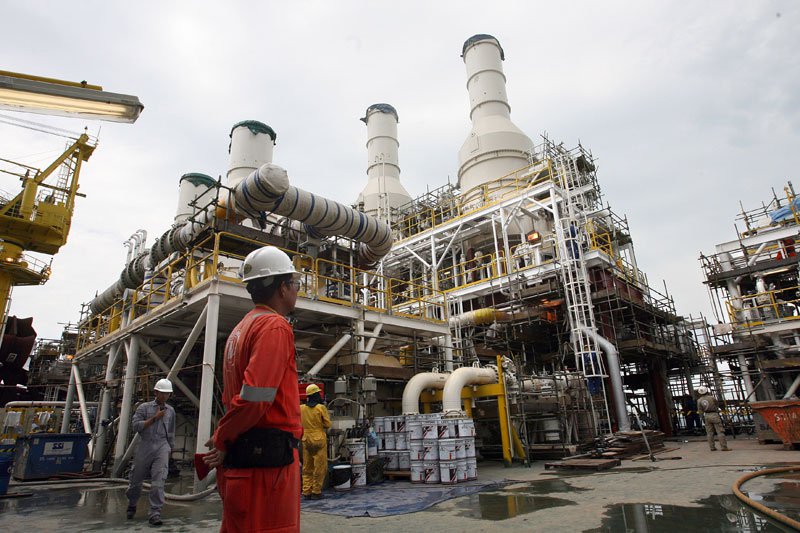
PTT Exploration and Production (PTTEP) found commercially proven gas reserves at the M9 block of the Zawtika project which is located 300 km southwest of Yangon in the Gulf of Mottama
PTTEP Myanmar Asset, a subsidiary of Bangkok-based PTT Exploration and Production, has found commercially proven gas reserves at the M9 block of the Zawtika project located 300km southwest of Yangon in the Gulf of Mottama. The company’s General Manager Piya Sukhumpanumet said in a press release that one of the successful wells, Zawtika-24, has commercially proven hydrocarbon reserves. Results showed that the well has positively shown proven reserves of 152 metres of net gas sands, more than the expected 41 metres with the latest discovery to prolong Zawtika’s gas production. -
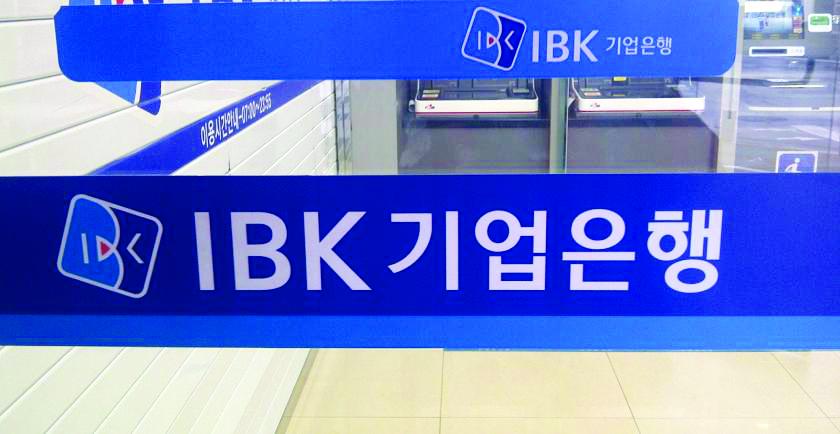
Industrial Bank of Korea is interested to extend its services in Myanmar to facilitate the SMEs industries with the most potential to produce finished products instead of exporting raw materials by providing technical assistance and funding
Industrial Bank of Korea, which is supporting small and medium enterprises in South Korea, is eyeing to extend its services in Myanmar, U Aung Kyi Soe, General Secretary of UMFCCI, said at the workshop on increasing agricultural and fishery export to South Korea from Myanmar held on February 16. Industrial Bank of Korea is an industrial bank headquartered in Jung-gu, Seoul, they provide financial services and management assistance to SMEs as well as providing other support in handling difficult situations related to the industry. “Industrial Bank of Korea has applied for a license to open its office in Myanmar. It provides nearly 80 percent of the SMEs in South Korea,”he added. -
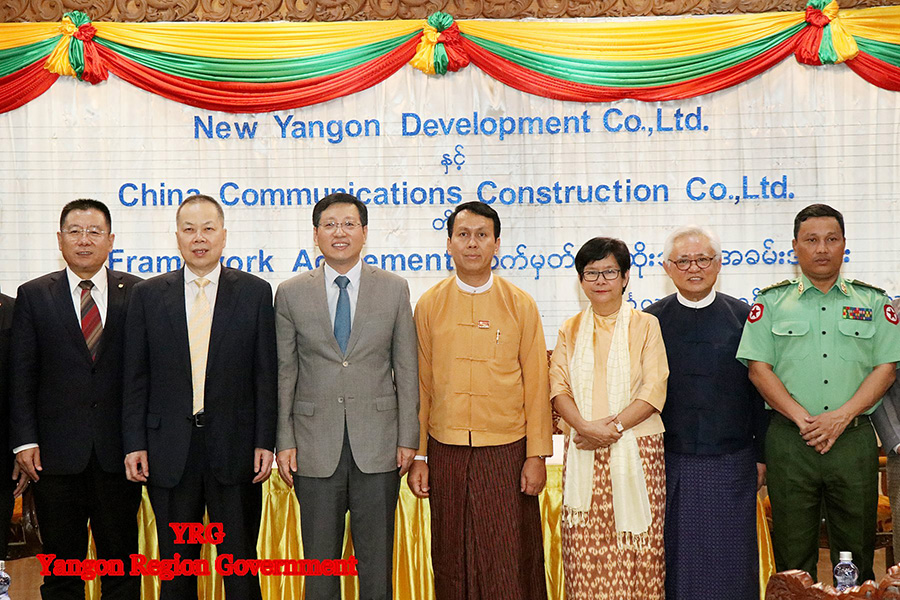
Chinese state owned firm signed a framework agreement with Yangon Regional Government to draw up a proposal for the infrastructure projects of New Yangon City project which has long list of controversies abroad
A Chinese state-owned company, which has signed a framework agreement with the Yangon government to draw up a proposal for the infrastructure projects of the New Yangon City project across the Yangon River expected to be twice the size of Singapore, has been embroiled in a number of controversies for its involvement in alleged fraud, corruption and bribery in many other countries where it implemented similar development projects. The 20,000-acre-wide New Yangon City, one of the projects of China’s ambitious Belt and Road Initiative (BRI), was launched by the Yangon regional government in March last year via the government-owned New Yangon Development Company (NYDC). The investment for the first phase of the project, mostly infrastructure projects, is $1.5 billion. NYDC signed a framework agreement with China Communications Construction Company (CCCC) in April last year for nine initial infrastructure projects in the first phase that includes two bridges, roads, power plants, water and wastewater treatment plants and a 10-square-kilometer industrial estate expected to generate 2 million jobs. However, it turns out that the Hong Kong-listed China-owned company has been accused of corruption and bribery in at least 10 countries—from the Philippines to Bangladesh to Tanzania—in Asia and Africa for development deals in those areas, according to international media reports. -
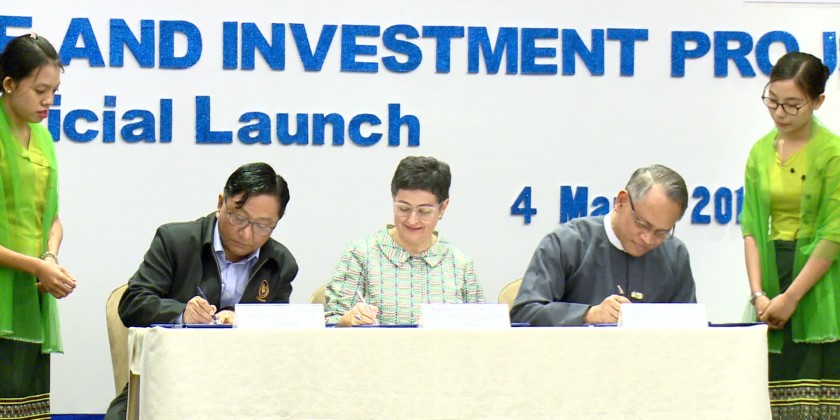
Trade and Investment projects have been launched in Yangon to improve market competitiveness, business and investment climate in Myanmar
Aiming to improve market competitiveness, business and investment climate in Myanmar, the Trade and Investment Project was officially launched in Yangon on Monday, with the presence of Union Minister for Commerce. Myanmar Trade Promotion Organization, Directorate of Investment and Company Administration (DICA) and UMFCCI are the leading implementers of Myanmar Trade and Investment Project, funded by the United Kingdom’s Department for International Development with the technical assistance from International Trade Center. The main responsibility of the project is to support joint efforts for public and private-sector partnership to strengthen Myanmar’s role in Asian economic system. Union Minister, Ministry of Commerce, H.E. Dr. Than Myint said “The project will serve to boost the trade and investment opportunities in the country as well as to support in implementing the National Export Strategy effectively in the near future.” -
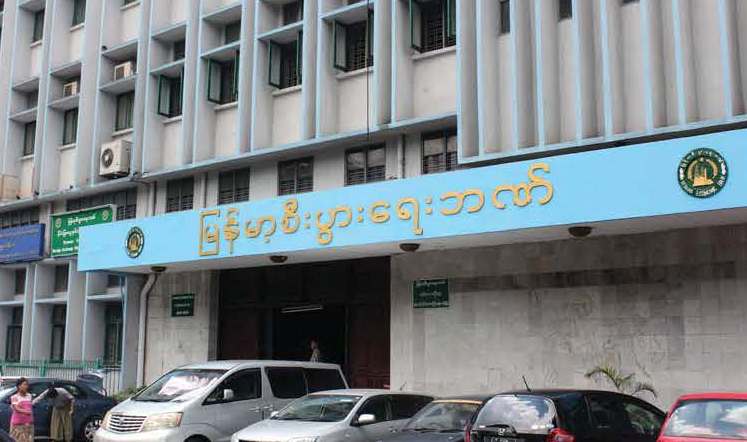
Domestic banks have been slowed to act on a Central Bank of Myanmar's decision to allow equity injection of up to 35 percent by foreign banks to invest in their operations
Domestic banks have been slow to act on a reform allowing equity injections of up to 35 percent by foreign banks, with some citing continued confusion over the rules. DOMESTIC BANKS have been slow to act on a Central Bank of Myanmar decision that allows foreign banks to invest in their operations, with industry sources attributing their hesitation to a failure of the Central Bank to provide clarity over the change. A Central Bank regulation issued on January 29 that formally allows foreign banks to have up to 35 percent equity in Myanmar banking institutions was broadly welcomed by a business community eager for greater access to finance. A senior Central Bank official who asked not to be named told Frontier that up to the third week of February, they had yet to receive a proposal from a local bank for foreign equity participation. Some bankers said they were still unsure whether the regulation applied equally to public, private and state-run banks. U Than Lwin, senior adviser at privately owned KBZ Bank, said the regulation, which implements provisions of the Myanmar Companies Law that took effect on August 1 last year, lacks clarity. -
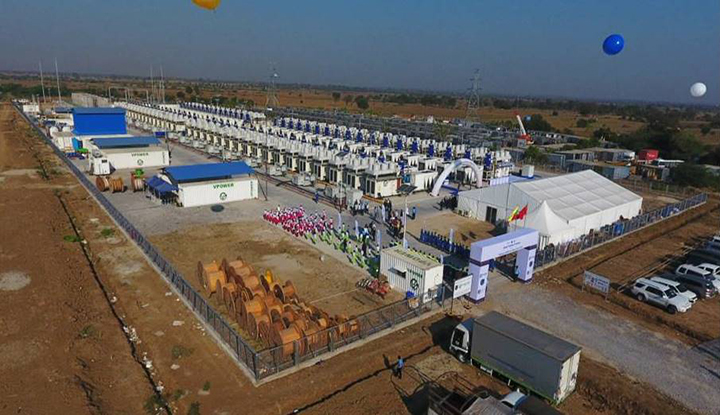
Joint venture between Hong Kong based VPower Holdings Limited and local Zeya & Associates Co., Ltd, a 90 megawatt gas fired station was opened in Myingya township in central Myanmar to serve as an additional power supply in summer
A 90-megawatt gas-fired station was opened in central Myanmar to serve as an additional power supply in summer when the domestic electricity demand reaches its peak. Constructed by the Hong Kong-based VPower Holdings Limited and its local partner Zeya & Associates Co. Ltd., under build-operate-own (BOO) system, near a steel factory in Myingyan Township, Mandalay Region, the station will generate 90 megawatts in summer and 45 megawatts in the rainy season, during which the production capacity of hydropower stations is high, said Union Minister for Electricuty and Energy U Win Khaing at the launching ceremony. Normally, the station will burn 20 million cubic feet of natural gas per day supplied by Shwe offshore field, but thanks to the organic rankine cycle (ORC) technology, that raises the efficiency of generators by two percent, it uses less natural gas, the Union Minister explained. He then explained the tender process and test run of the station that has been supplying power for the public and industries of Myingyan, Taungtha, Nwatoegyi and Bagan-NyaungU townships, water pumping stations in Myingyan District and Myotha industrial zone since 1 February 2019 through the 132-kv subpower station. -
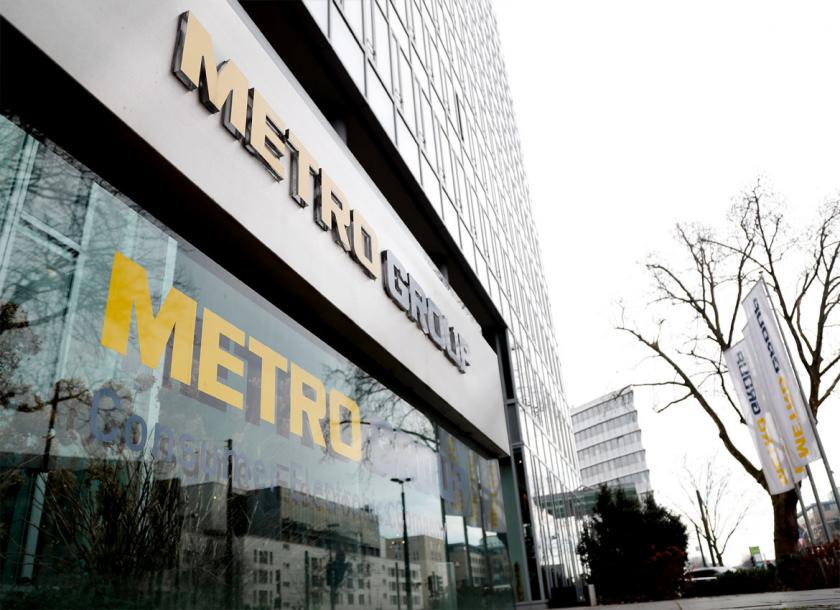
Myanmar subsidiary of German retail group, Metro AG secured USD $ 20 million loan from the International Finance Corporation (IFC)
The Myanmar subsidiary of German retail group Metro AG has raised a US$20m loan from the International Finance Corporation, the private-sector arm of the World Bank. The subsidiary Metro Wholesale Myanmar is a 85pc-15pc joint venture between Frankfurt-listed Metro AG and Singapore-listed Yoma Strategic Holdings, offering one-stop wholesale food service distribution for hotels, restaurants, retailers, and offices. The IFC said the financing aims to drive up agricultural incomes as well as improve the quality and availability of local produce, benefiting buyers and end consumers. The terms of the loan were not disclosed. It also said the investment will help Metro source the majority of its produce from local farmers and companies, raising food safety standards and creating employment opportunities in food processing and logistic services. -
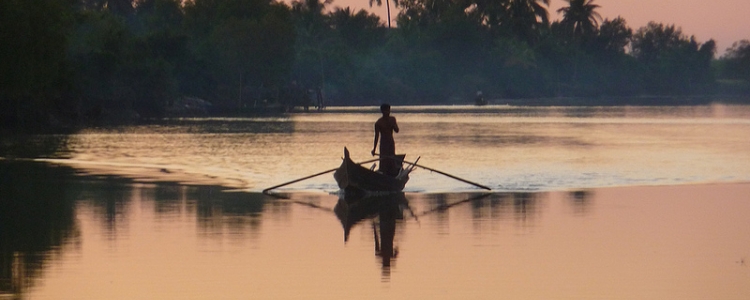
Japanese businesses people are interested to do investments in Myanmar’s livestock and fishery sectors
Japan has taken interest in Myanmar's livestock and fishery sectors with its businesspeople preparing to do business in the country, said Aung Thu, Union Minister for Agriculture, Livestock and Irrigation. The minister disclosed the information during a seminar on all-round development of the country's fishery industry. "When I attended a forum related to investment in Rakhine State, many Japanese businessmen talked about this. They have great interest in the livestock and fishery sectors. Even the second and third largest companies from Japan are reportedly preparing to invest. Entrepreneurs in our country need to make greater efforts to catch up with pending development," said the minister. -
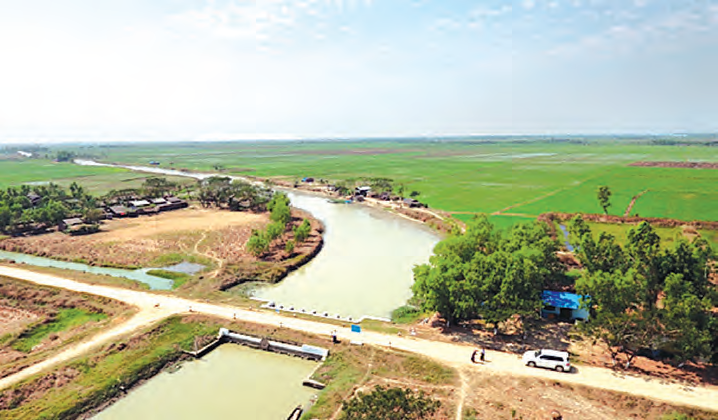
World Bank will support the lower Burma Paddyland Development project in order to increase crop production and develop the agricultural sector in Myanmar’s delta regions
To develop the agricultural sector in Myanmar’s delta region, the World Bank supported the Lower Burma Paddyland Development Project, as part of the UN development programme. The Paddy I Project was carried out in Pyapon, Labutta, Ngapudaw, Bogale, and Wakema townships from 1976 to 1985. Paddy II Project was undertaken in Kyaiklat-Maubin, Bogale, Thanlyin, and Labutta townships from 1978 to 1990. The projects led to the formation of polders to expand agricultural areas, build sluices, canals, and other projects that will help with agriculture and irrigation. This has helped in reducing flooding, controlling freshwater, and enabling seasonal planting which have established the region as a formidable agricultural success for many years. -
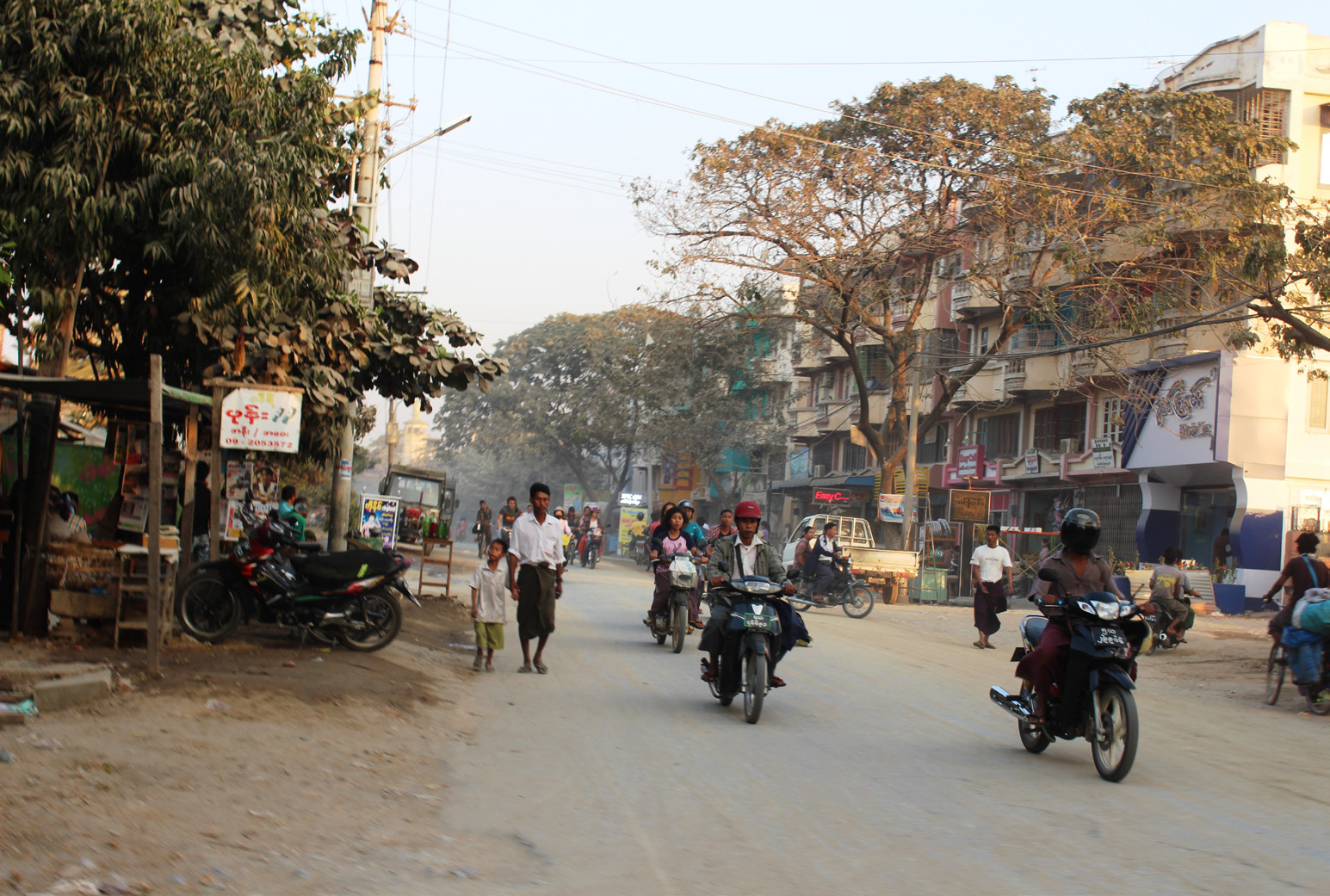
Rakhine State has the lowest workforce and the highest unemployment rate among all other states and regions in Myanmar
Despite having abundant natural resources such as a vast oil and gas deposits, Rakhine State has the lowest workforce and the highest unemployment rate among all other states and regions in Myanmar, according to an investment opportunity survey for the state. In the whole country, 67 percent of the population works and the unemployment rate is just 3.9 percent. However, in Rakhine State, working class represents only 52.6 percent while unemployment rate is 10.4 percent. Of all the states and regions, Shan State has the largest workforce with 75.9 percent and the lowest employment rate with just over 2 percent.
เกาะติดข่าว
Copyright © 2014 Business Information Center All Rights Reserved.







